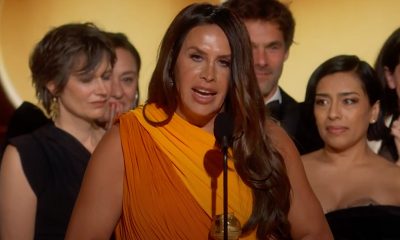Arts & Entertainment
Nominees (and 2 winners) for 2021 Golden Globes announced
A rainbow of LGBTQIA nominees….and winners
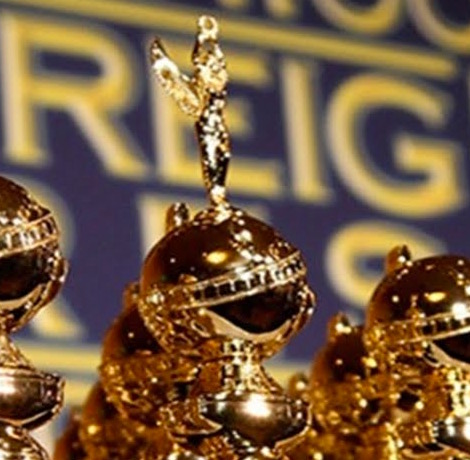
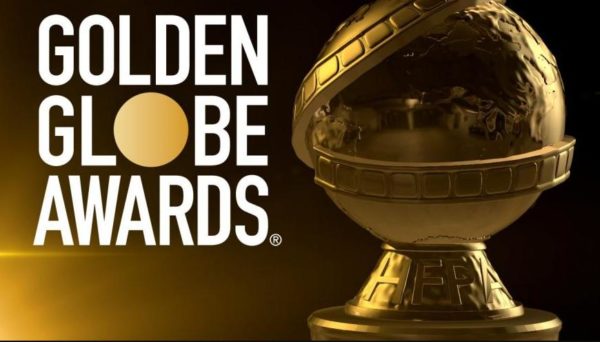
The Golden Globes 2021 nominees were announced today in Los Angeles and there were a multitude of LGBTQ actors, films, television and other nominees announced. Two LGBTQ-inclusive films, The Life Ahead and Two Of Us, were nominated for Best Picture.
The Golden Globes 2021 nominees were announced today in Los Angeles and there were a multitude of LGBTQ actors, characters, films, television and other nominees announced. Two LGBTQ-inclusive films, The Life Ahead and Two Of Us, were nominated for Best Picture.
In truth, it’s somewhat difficult to single out which of this year’s slate count as nods to LGBTQ inclusion. Thanks to ongoing pressure from advocacy groups like GLAAD and growing public demand via social media and other platforms, there’s a growing queer presence in the content produced by the Hollywood machine; LGBTQ characters and/or creative talent are part of the mix in multiple titles throughout the list. In just the four Best Picture categories alone, Promising Young Woman, Music, The Prom, Onward, and the aforementionedThe Life Ahead and Two of Us can be considered queer or queer-adjacent. When you consider all the other categories as well, keeping track of the LGBTQ connections becomes a challenge.
That, of course, is nothing to complain about. It’s a sign that decades of media invisibility for non hetero-and-cis-normative people and their experiences are at long last giving way to an era of increased visibility.
Still, there is at least one eyebrow-raiser.
A disquieting note comes from the nomination of James Corden as Best Actor in a Musical or Comedy Motion Picture, for his role as a gay Broadway actor in Ryan Murphy’s movie adaptation of The Prom. Corden identifies as straight, and despite his status as a long-standing and supportive ally, his performance in the film has been criticized by many observers as leaning heavily into the realm of stereotype and caricature. Add to this the continuing discussion around straight actors playing non-straight roles, and the nomination – already a surprise, at least in part because of the notable snub of Corden’s co-star Meryl Streep in the Best Actress category – has stirred controversy, as well.
Corden is not the only nominee, however, who is being honored for “playing gay.” Rosamund Pike, who is straight, earned her Best Actress in a Drama nod for playing a lesbian con artist; in addition, performers Viola Davis (Ma Rainey’s Black Bottom) and Andra Day (The United States vs. Billie Holliday), both nominated for playing real-life musical icons in films that address their bisexuality, and Jodie Comer, nominated once more for her acclaimed work as a lesbian assassin in the Hulu series Killing Eve, have never publicly identified as anything other than straight. These nominations have not met with the same level of vocal criticism levied at Corden’s nod. Pike, Davis and Day will all face off against each other in their category.
Dwelling on the problematic, as tempting as it is, overshadows the considerable triumph represented by the impressive score of Schitt’s Creek. The beloved Canadian sitcom has already made history by sweeping all its eligible acting categories at last year’s Emmy Awards for its final season. It is now positioned for a possible repetition of that feat, with series stars Eugene Levy, Catherine O’Hara, Dan Levy, and Annie Murphy in the running in the Television Comedy division for Best Leading Actor, Best Leading Actress, Best Supporting Actor, and Best Supporting Actress, respectively. Levy, playing a pansexual-identified character who becomes half of arguably one of television’s all-time favorite same-sex couples to date, is gay in real life. The show is also up for Best Comedy or Musical Television Series.
As for the rest of the lineup, here’s a breakdown of the other most notable LGBTQ-relevant nominees:
The Best Television Series Drama category includes two shows featuring LGBTQ storylines and characters, Netflix’s Ratched and HBO Max’s Lovecraft Country.
Out actress Sarah Paulson joins previous winner Comer in the running for Television Drama Best Actress, nominated for the title role in Ratched. The series also picked up a nod for out actress Cynthia Nixon in the Supporting Actress category.
Out actor Jim Parsons was tapped as a contender for Best Supporting Actor for his role in Netflix’s Hollywood. Though the show is a drama, he will be competing directly against Levy for the win, since the Golden Globes lump supporting performances together in a single category rather than differentiating between drama and comedy, as they do for the leading players.
In the Best Comedy Series category, The Flight Attendant, a popular HBO Max show featuring two gay men among its cast of major characters, picked up a nomination.
On the Film side, while the nominees for Best Picture (Drama) don’t include any notable LGBTQ storylines or characters, one of them, Promising Young Woman, does feature transgender actress Laverne Cox in a significant supporting role. The Prom received a nod in the Best Picture (Comedy or Musical) race; in addition to Corden’s role, the film features a number of other queer characters, as well as multiple out performers, and its story centers on the efforts of a lesbian teenager to force her high school to allow her to take her girlfriend to the senior prom. In the same category, Music, written and directed by out bisexual singer/songwriter Sia, also received a nomination. The inclusion of both films in that race were something of a surprise – especially the latter, given that Sia’s acclaimed cinematic debut is still mostly unseen by all but a few industry insiders.
Up for Best Animated Picture is Disney/Pixar’s Onward, which won praise for its casual inclusion of an openly-identified gay character – voiced by out actress Lena Waithe – in a minor role.
As mentioned above, the Best Foreign Language Film category includes The Life Ahead, an Italian drama starring cinema icon Sophia Loren which also features a transgender leading character, played by trans actress Abril Zamora. It will compete with France’s Two of Us, a drama about longtime lesbian lovers who face separation due to a health crisis.
In the Best Supporting Actress Category (again, as with television, the Globes combine both dramatic and comedic films for supporting roles), out actress Jodie Foster is up for the prize for her work in The Mauritanian.
Also of note: out producer/director Ryan Murphy, whose body of work has established himself as one of the de facto leaders in the effort to claim space for LGBTQ people and narratives in mainstream entertainment culture, has an impressive three projects represented in this year’s nominations: Ratched, Hollywood, and The Prom. His film of The Boys in the Band, however, is one of many worthy films and shows to be snubbed this year – a particularly egregious omission in light of the presence of titles like The Undoing, Emily in Paris, and Borat Subsequent Moviefilm among the honorees, all of which received mixed critical and audience reception, at best. If we’re being fair, the same could be said of Murphy’s three nominated shows and films, though each found popularity with enthusiastic fans.
Lastly, the recipients of this year’s two honorary awards are each notable for their LGBTQ connections. Screen legend Jane Fonda, who will be honored with the Cecil B. deMille Award, is one of the stars of Netflix’s extremely LGBTQ-friendly Grace and Frankie, while Carol Burnett Award-winner Norman Lear has been lauded for his many groundbreaking contributions toward inclusion in the classic sitcoms he has created and developed in a career that spans over 70 years.
Hosted by Tina Fey and Amy Poehler, the 78th Annual Golden Globe Awards will air live coast to coast on Sunday, Feb. 28 from 8-11 p.m. ET/5-8 p.m. PT on NBC. Poehler will host the awards show from the Beverly Hilton in Los Angeles, where the Golden Globes are typically held, while Fey will be set up in The Rainbow Room, which is inside NBC’s corporate headquarters at 30 Rockefeller Plaza in New York City. Jane Fonda will receive this year’s Cecil B. DeMille Award and Norman Lear will be awarded the Carol Burnett Award.
The complete list of nominees is below.
Best Picture Drama
The Father
Mank
Nomadland
Promising Young Woman
The Trial of the Chicago 7
Best Picture – Musical/Comedy
Borat Subsequent Moviefilm
Hamilton
Music
Palm Springs
The Prom
Best Actress – Motion Picture Drama
Viola Davis Ma Rainey’s Black Bottom
Andra Day United States vs. Billie Holiday
Vanessa Kirby Pieces of a Woman
Frances McDormand Nomadland
Carey Mulligan Promising Young Woman
Best Actor – Motion Picture Drama
Riz Ahmed Sound of Metal
Chadwick Boseman Ma Rainey’s Black Bottom
Anthony Hopkins The Father
Gary Oldman Mank
Tahar Rahim The Mauritanian
Best Actress – Motion Picture – Musical/Comedy
Maria Bakalova for Borat Subsequent Moviefilm
Kate Hudson for Music
Michelle Pfeiffer for French Exit
Rosamund PikeI for Care A Lot
Anya Taylor-Joy for Emma.
Best Actor – Motion Picture – Musical/Comedy
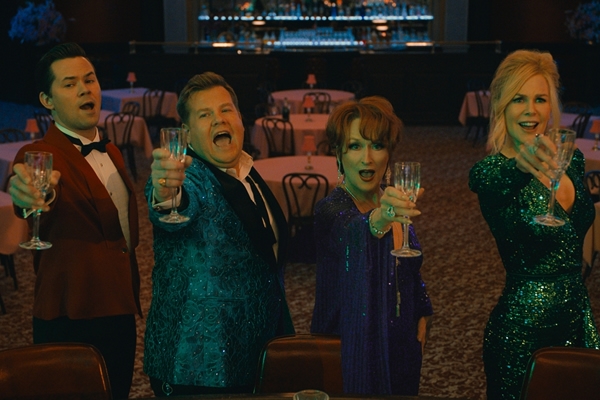
Sacha Baron CohenBorat Subsequent Moviefilm
James Corden The Prom
Lin-Manuel Mirandafor Hamilton
Dev Patel for The Personal History of David Copperfield
Andy Samberg for Palm Springs
Best Supporting Actress – Motion Picture
Glenn Close for Hillbilly Elegy
Olivia Colman for The Father
Jodie Foster for The Mauritanian
Amanda Seyfried for Mank
Helena Zengel for News of the World
Best Supporting Actor – Motion Picture
Sacha Baron Cohen, The Trial of the Chicago 7
Daniel Kaluuya for Judas and the Black Messiah
Jared Leto for The Little Things
Bill Murray for On The Rocks
Leslie Odom Jr.in One Night in Miami…
Best Director Motion Picture
Emerald Fennell for Promising Young Woman
David Fincher for Mank
Regina King for One Night in Miami…
Aaron Sorkin for The Trial of the Chicago 7
Chloé Zhao for Nomadland
Best Screenplay Motion Picture
Emerald Fennell for Promising Young Woman
Jack Fincher for Mank
Aaron Sorkin for The Trial of the Chicago 7
Christopher Hampton,Florian Zeller for The Father
Chloé Zhao for Nomadland
Best Picture – Animated
The Croods: A New Age
Onward
Over the Moon
Soul
Wolfwalkers
Best Picture – Foreign Language
Best Score Motion Picture
Alexandre Desplat The Midnight Sky
Ludwig Göransson, Tenet
James Newton Howard, News of the World
Atticus Ross,Trent Reznor for Mank
Jon Batiste,Atticus Ross,Trent Reznor for Soul
Judas and the Black Messiah, Fight For You
The United States vs. Billie Holiday, Tigress & Tweed
Best Drama Series
The Crown
Lovecraft Country
The Mandalorian
Ozark
Ratched
Best Musical/Comedy Series
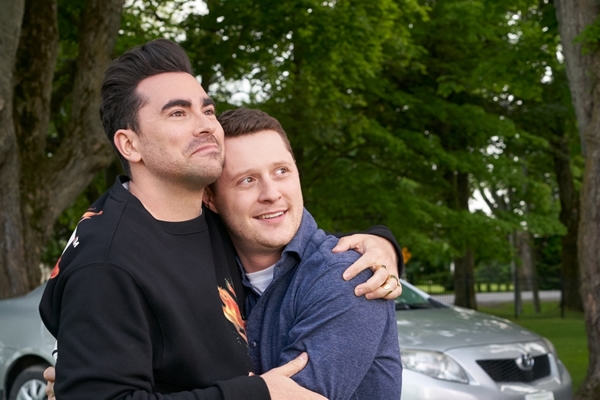
Emily in Paris
The Flight Attendant
The Great
Schitt’s Creek
Ted Lasso
Best Television Motion Picture
Normal People
The Queen’s Gambit
Small Axe
Undoing, The
Unorthodox
Best Actress – Television Motion Picture
Cate Blanchett for Mrs. America
Daisy Edgar-Jones for Normal People
Shira Haas for Unorthodox
Nicole Kidman for The Undoing
Anya Taylor-Joy for The Queen’s Gambit
Best Actor – Television Motion Picture
Bryan Cranston for Your Honor
Jeff Daniels, The Comey Rule
Hugh Grant The Undoing
Ethan Hawke for The Good Lord Bird
Mark Ruffalo for I Know This Much Is True
Best Television Actress – Drama Series
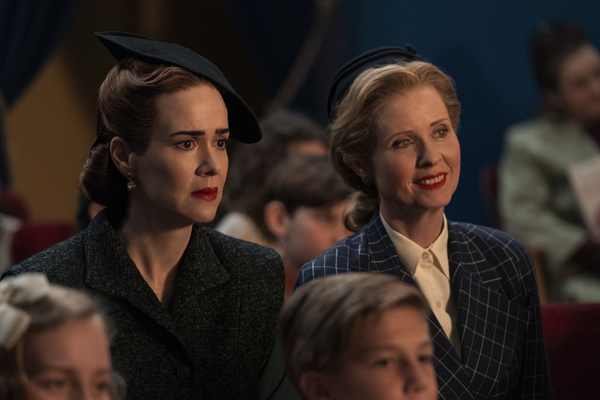
Olivia Colman, The Crown
Jodie Comer, Killing Eve
Emma Corrin, The Crown
Laura Linney, Ozark
Sarah Paulson, Ratched
Best Television Actor – Drama Series
Jason Bateman, Ozark
Josh O’Connor, The Crown
Bob Odenkirk, Better Call Saul
Al Pacino, Hunters
Matthew Rhys, Perry Mason
Best Television Actress – Musical/Comedy Series
Lily Collins, Emily in Paris
Kaley Cuoco, Flight Attendant
Elle Fanning, The Great
Jane Levy, Zoey’s Extraordinary Playlist
Catherine O’Hara, Schitt’s Creek
Best Television Actor – Musical/Comedy Series
Don Cheadle, Black Monday
Nicholas Hoult, The Great
Eugene Levy, Schitt’s Creek
Jason Sudeikis, Ted Lasso
Ramy Youssef, Ramy
Best Supporting Actress – Television
Gillian Anderson, The Crown
Helena Bonham Carter, The Crown
Julia Garner, Ozark
Annie Murphy, Schitt’s Creek
Cynthia Nixon, Ratched
Best Supporting Actor – Television
John Boyega, Small Axe
Brendan Gleeson, The Comey Rule
Daniel Levy, Schitt’s Creek
Jim Parsons, Hollywood
Donald Sutherland, The Undoing
Cecil B. deMille Award
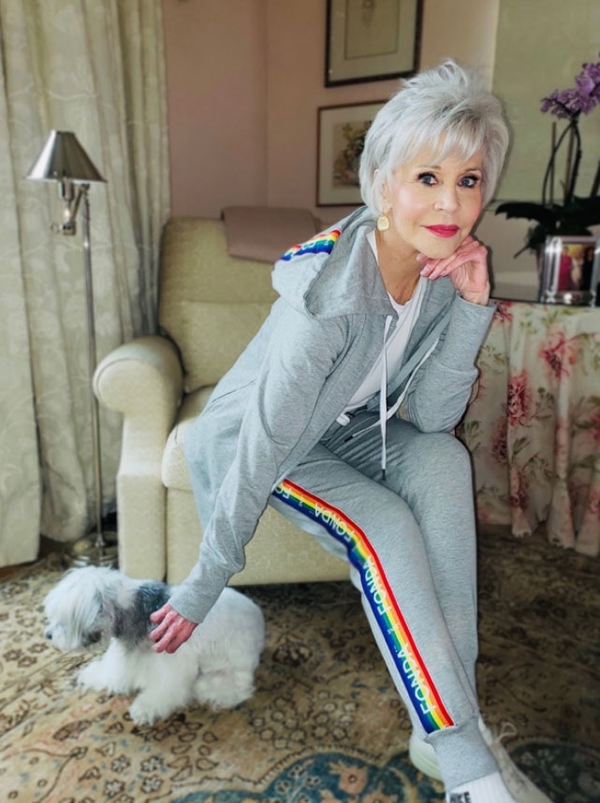
2021 Winner: Jane Fonda
Carol Burnett Award
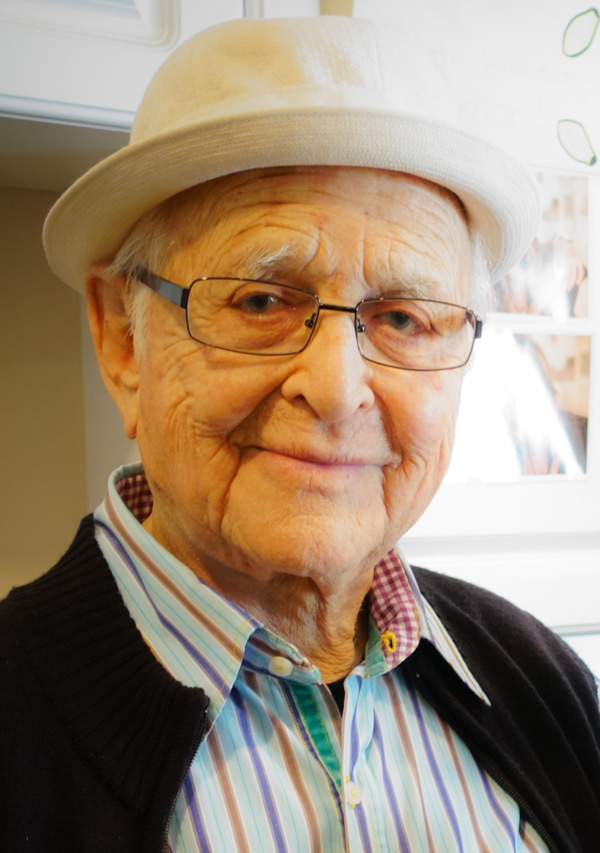
2021 Winner: Norman Lear
Photos
PHOTOS: Montgomery County Pride in the Plaza
LGBTQ celebration held in downtown Silver Spring

Montgomery County Pride in the Plaza was held on Sunday, June 29 at Veterans Plaza in Silver Spring, Md.
(Washington Blade photos by Michael Key)























The fifth annual Fredericksburg Pride march and festival was held on Saturday, June 28. A march through the streets of downtown Fredericksburg, Va. was followed by a festival at Riverfront Park.
(Washington Blade photos by Michael Key)



















India
Anaya Bangar challenges ban on trans women in female cricket teams
Former Indian cricketer Sanjay Bangar’s daughter has received support

Anaya Bangar, the daughter of former Indian cricketer Sanjay Bangar, has partnered with the Manchester Metropolitan University Institute of Sport in the U.K. to assess her physiological profile following her gender-affirming surgery and undergoing hormone replacement therapy.
From January to March 2025, the 23-year-old underwent an eight-week research project that measured her glucose levels, oxygen uptake, muscle mass, strength, and endurance after extensive training.
The results, shared via Instagram, revealed her metrics align with those of cisgender female athletes, positioning her as eligible for women’s cricket under current scientific standards. Bangar’s findings challenge the International Cricket Council’s 2023 ban on transgender athletes in women’s cricket, prompting her to call for a science-based dialogue with the Board of Control for Cricket in India and the ICC to reform policies for transgender inclusion.
“I am talking with scientific evidence in my hand,” Bangar said in an interview posted to her Instagram page. “So, I hope, this makes an impact and I will be hoping to BCCI and ICC talking with me and discussing this further.”
On Nov. 21, 2023, the ICC enacted a controversial policy barring trans women from international women’s cricket. Finalized after a board meeting in Ahmedabad, India, the regulation prohibits any trans player who has experienced male puberty from competing, irrespective of gender-affirming surgery or hormone therapy. Developed through a 9-month consultation led by the ICC’s Medical Advisory Committee, the rule aims to safeguard the “integrity, safety, and fairness” of women’s cricket but has drawn criticism for excluding athletes like Canada’s Danielle McGahey, the first trans woman to play internationally. The policy, which allows domestic boards to set their own rules, is slated for review by November 2025.
Bangar shared a document on social media verifying her participation in a physiological study at the Manchester Metropolitan University Institute of Sport, conducted from Jan. 20 to March 3, 2025, focused on cricket performance. The report confirmed that her vital metrics — including haemoglobin, blood glucose, peak power, and mean power — aligned with those of cisgender female athletes. Initially, her fasting blood glucose measured 6.1 mmol/L, slightly above the typical non-diabetic range of 4.0–5.9 mmol/L, but subsequent tests showed it normalized, reinforcing the study’s findings that her physical profile meets female athletic standards.
“I am submitting this to the BCCI and ICC, with full transparency and hope,” said Bangar. “My only intention is to start a conversation based on facts not fear. To build space, not divide it.”
In a letter to the BCCI and the ICC, Bangar emphasized her test results from the Manchester Metropolitan University study. She explained that the research aimed to assess how hormone therapy had influenced her strength, stamina, haemoglobin, glucose levels, and overall performance, benchmarked directly against cisgender female athletic standards.
Bangar’s letter to the BCCI and the ICC clarified the Manchester study was not intended as a political statement but as a catalyst for a science-driven dialogue on fairness and inclusion in cricket. She emphasized the importance of prioritizing empirical data over assumptions to shape equitable policies for trans athletes in the sport.
Bangar urged the BCCI, the world’s most influential cricket authority, to initiate a formal dialogue on trans women’s inclusion in women’s cricket, rooted in medical science, performance metrics, and ethical fairness. She called for the exploration of eligibility pathways based on sport-specific criteria, such as haemoglobin thresholds, testosterone suppression timelines, and standardized performance testing. Additionally, she advocated for collaboration with experts, athletes, and legal advisors to develop policies that balance inclusivity with competitive integrity.
“I am releasing my report and story publicly not for sympathy, but for truth. Because inclusion does not mean ignoring fairness, it means measuring it, transparently and responsibly,” said Bangar in a letter to the BCCI. “I would deeply appreciate the opportunity to meet with you or a representative of the BCCI or ICC to present my findings, discuss possible policy pathways, and work towards a future where every athlete is evaluated based on real data, not outdated perceptions.”
Before her transition, Bangar competed for Islam Gymkhana in Mumbai and Hinckley Cricket Club in the U.K., showcasing her talent in domestic cricket circuits. Her father, Sanjay Bangar, was a dependable all-rounder for the Indian national cricket team from 2001 to 2004, playing 12 test matches and 15 One Day Internationals. He later served as a batting coach for the Indian team from 2014 to 2019, contributing to its strategic development.
Cricket in India is a cultural phenomenon, commanding a fanbase of more than 1 billion, with more than 80 percent of global cricket viewership originating from the country.
The International Cricket Council, the sport’s governing body, oversees 12 full member nations and more than 90 associate members, with the U.S. recently gaining associate member status in 2019 and co-hosting the 2024 ICC Men’s T20 World Cup. The BCCI generated approximately $2.25 billion in revenue in the 2023–24 financial year, primarily from the Indian Premier League, bilateral series, and ICC revenue sharing. The ICC earns over $3 billion from media rights in India alone for the 2024–27 cycle, contributing nearly 90 percent of its global media rights revenue, with the BCCI receiving 38.5 percent of the ICC’s annual earnings, approximately $231 million per year.
Women’s cricket in India enjoys a growing fanbase, with over 300 million viewers for the Women’s Premier League in 2024, making it a significant driver of the sport’s global popularity. The International Cricket Council oversees women’s cricket in 12 full member nations and over 90 associate members, with the U.S. fielding a women’s team since gaining associate status in 2019 and competing in ICC events like the 2024 Women’s T20 World Cup qualifiers. The BCCI invests heavily in women’s cricket, allocating approximately $60 million annually to the WPL and domestic programs in 2024–25, while contributing to the ICC’s $20 million budget for women’s cricket development globally. India’s media market for women’s cricket, including WPL broadcasting rights, generated $120 million in 2024, accounting for over 50 percent of the ICC’s women’s cricket media revenue.
“As a woman, I feel when someone says that they are women, then they are, be trans or cis. A trans woman is definitely the same as a cis woman emotionally and in vitals, and specially, when someone is on hormone replacement therapy. Stopping Anaya Bangar from playing is discrimination and violation of her rights. It is really sad and painful that every transwoman need to fight and prove their identity everywhere,” said Indrani Chakraborty, an LGBTQ rights activist and a mother of a trans woman. “If ICC and BCCI is stopping her from playing for being transgender, then I will say this to be their lack of awareness and of course the social mindsets which deny acceptance.”
Chakraborty told the Blade that Bangar is an asset, no matter what. She said that the women’s cricket team will only benefit by participation, but the discriminating policies are the hindrance.
“Actually the transgender community face such discrimination in every sphere. In spite of being potent, they face rejection. This is highly inhuman. These attitudes is regressive and will never let to prosper. Are we really in 2025?,” said Chakraborty. “We, our mindset and the society are the issues. We, as a whole, need to get aware and have to come together for getting justice for Anaya. If today, we remain silent, the entire community will be oppressed. Proper knowledge of gender issues need to be understood.”
The BCCI and the International Cricket Council have not responded to the Blade’s repeated requests for comment.
-

 U.S. Supreme Court5 days ago
U.S. Supreme Court5 days agoSupreme Court upholds ACA rule that makes PrEP, other preventative care free
-

 U.S. Supreme Court5 days ago
U.S. Supreme Court5 days agoSupreme Court rules parents must have option to opt children out of LGBTQ-specific lessons
-

 Television5 days ago
Television5 days ago‘White Lotus,’ ‘Severance,’ ‘Andor’ lead Dorian TV Awards noms
-

 Music & Concerts5 days ago
Music & Concerts5 days agoBerkshire Choral to commemorate Matthew Shepard’s life





